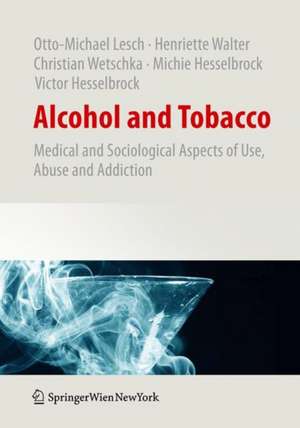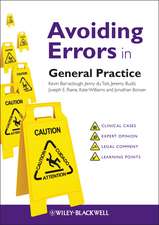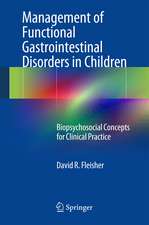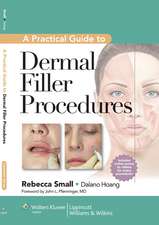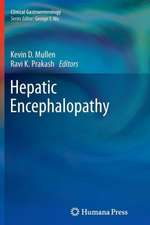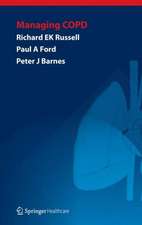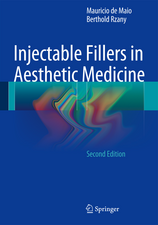Alcohol and Tobacco: Medical and Sociological Aspects of Use, Abuse and Addiction
Autor Otto-Michael Lesch, Henriette Walter, Christian Wetschka, Michie Hesselbrock, Victor Hesselbrocken Limba Engleză Hardback – 15 oct 2010
In this book, new therapeutic approaches are comprehensively described, outlining the different interactions between personality, environment and the effects of the substance.
In addition to prevention-based therapies and diagnosis, essential psychological and sociological strategies, as well as medication-based therapies, are also presented in detail. All of these therapies have realistic aims and are of global validity. In addition, the book provides a broad overview of the American and European epidemiology of alcohol and nicotine addictions. The book is written for all those who care for and offer professional therapy for alcohol and nicotine-addicted patients.
| Toate formatele și edițiile | Preț | Express |
|---|---|---|
| Paperback (1) | 635.78 lei 39-44 zile | |
| SPRINGER VIENNA – 13 oct 2014 | 635.78 lei 39-44 zile | |
| Hardback (1) | 366.83 lei 39-44 zile | |
| SPRINGER VIENNA – 15 oct 2010 | 366.83 lei 39-44 zile |
Preț: 366.83 lei
Preț vechi: 386.14 lei
-5% Nou
Puncte Express: 550
Preț estimativ în valută:
70.20€ • 75.06$ • 58.53£
70.20€ • 75.06$ • 58.53£
Carte tipărită la comandă
Livrare economică 14-19 aprilie
Preluare comenzi: 021 569.72.76
Specificații
ISBN-13: 9783709101452
ISBN-10: 370910145X
Pagini: 380
Ilustrații: XVII, 354 p.
Dimensiuni: 170 x 242 x 23 mm
Greutate: 0.75 kg
Ediția:2011
Editura: SPRINGER VIENNA
Colecția Springer
Locul publicării:Vienna, Austria
ISBN-10: 370910145X
Pagini: 380
Ilustrații: XVII, 354 p.
Dimensiuni: 170 x 242 x 23 mm
Greutate: 0.75 kg
Ediția:2011
Editura: SPRINGER VIENNA
Colecția Springer
Locul publicării:Vienna, Austria
Public țintă
Professional/practitionerCuprins
Table of contents
1 Information on the origination of the book
1.1 Aims of this book
1.2 Personal reasons for the first author writing this book
2 Addiction- a short overview over a widespread disease
2.1 Introduction
2.2 Prevention
2.3 Diagnosis of addiction
2.4 Aetiology of addiction
2.5 Secondary disorders and addiction
2.6 Secondary diseases and brain functions
2.7 Subgroups of addicts
2.8 Motivation of addicts
2.9 The path from motivation to therapy
2.10 Addiction and relapse
2.11 Specific groups of addicts
2.12 Addiction and the homeless
2.13 Polytoxicomania
2.14 Non-substance dependence
3 Aetiology of Addiction
3.1 The psycho-socio-biological model
3.2 Psychological theories
3.3 Socialexplanation approaches
3.4 Biological theories about the aetiology of tobacco and alcohol addiction
3.5 Aetiological aspects of tobacco and alcohol addiction from an epidemiological perspective
3.6 Aetiology of addiction from a psychiatric perspective
4 Prevention strategies
4.1 Attitude towards addictive drugs
4.2 Primary prevention of tobacco and alcohol addiction
4.3 Secondary prevention: early diagnosis and early intervention
4.4 Tertiary prevention
5 Diagnosis of abuse and addiction
5.1 Problems concerning psychiatric diagnoses
5.2 Development of the term “addiction”
5.3 Substance related diagnoses in the ICD-10
5.4 Substance related diagnosis in DSM-IV (American Psychiatric Association. 1994)
5.5 Commonalities and differences of ICD-10 and DSM-IV
5.6 Implication of these classification systems for therapy and research
6 Types, dimensions and aetiology
6.1 Alcohol addiction
6.2 Tobacco addiction
6.3 Alcohol addiction: Lesch’s typology
6.4 The relationship between alcohol dependent patients according to Lesch`s typology and the
severity of tobacco addiction
7 Motives for alcohol and/or tobacco addicted patients to seek medical help
7.1 Tobacco addiction
7.2 Alcohol addiction
7.3 Sequelae that bring patients into therapy
8 Detection of alcohol and tobacco addiction
8.1 Recommendations for the first contact
8.2 Assessment of drinking behaviour using biological markers
8.3 The clinical dialogue in tobacco addiction
9 Therapeutic strategies for alcohol and tobacco dependence
9.1 Motivation for therapy in different settings
9.2 Pharmacotherapy of alcohol and tobacco dependence
9.3 Pharmacotherapy of alcohol withdrawal
9.4 Alternatives to withdrawal
9.5 Pharmacotherapy of the tobacco withdrawal syndrome
9.6 Medical strategies for relapse prophylaxis
10 Sociotherapy of alcohol and tobacco dependents with regards to Lesch’s typology
10.1 Alcohol and tobacco
10.2 The sociotherapeuticmission
10.3 Classification Psychotherapy-Sociotherapy
10.4 Sociogenesis and sociotherapeutic chances
10.5 Sociotherapy in the context of therapeutic phases
10.6 State of the art: overlapping perspectives for sociotherapeutic housing and support
10.7 Motivation- a challenge for whom?
10.8 Sociotherapy as a means of promoting networking
10.9 Sociotherapy with alcohol dependents in the context of Lesch’s typology
Appendix 1 Lesch Alcoholism Typology – Questionnaire
Appendix 2 Lesch European Smoker Classification
Index
About the Authors
1 Information on the origination of the book
1.1 Aims of this book
1.2 Personal reasons for the first author writing this book
2 Addiction- a short overview over a widespread disease
2.1 Introduction
2.2 Prevention
2.3 Diagnosis of addiction
2.4 Aetiology of addiction
2.5 Secondary disorders and addiction
2.6 Secondary diseases and brain functions
2.7 Subgroups of addicts
2.8 Motivation of addicts
2.9 The path from motivation to therapy
2.10 Addiction and relapse
2.11 Specific groups of addicts
2.12 Addiction and the homeless
2.13 Polytoxicomania
2.14 Non-substance dependence
3 Aetiology of Addiction
3.1 The psycho-socio-biological model
3.2 Psychological theories
3.3 Socialexplanation approaches
3.4 Biological theories about the aetiology of tobacco and alcohol addiction
3.5 Aetiological aspects of tobacco and alcohol addiction from an epidemiological perspective
3.6 Aetiology of addiction from a psychiatric perspective
4 Prevention strategies
4.1 Attitude towards addictive drugs
4.2 Primary prevention of tobacco and alcohol addiction
4.3 Secondary prevention: early diagnosis and early intervention
4.4 Tertiary prevention
5 Diagnosis of abuse and addiction
5.1 Problems concerning psychiatric diagnoses
5.2 Development of the term “addiction”
5.3 Substance related diagnoses in the ICD-10
5.4 Substance related diagnosis in DSM-IV (American Psychiatric Association. 1994)
5.5 Commonalities and differences of ICD-10 and DSM-IV
5.6 Implication of these classification systems for therapy and research
6 Types, dimensions and aetiology
6.1 Alcohol addiction
6.2 Tobacco addiction
6.3 Alcohol addiction: Lesch’s typology
6.4 The relationship between alcohol dependent patients according to Lesch`s typology and the
severity of tobacco addiction
7 Motives for alcohol and/or tobacco addicted patients to seek medical help
7.1 Tobacco addiction
7.2 Alcohol addiction
7.3 Sequelae that bring patients into therapy
8 Detection of alcohol and tobacco addiction
8.1 Recommendations for the first contact
8.2 Assessment of drinking behaviour using biological markers
8.3 The clinical dialogue in tobacco addiction
9 Therapeutic strategies for alcohol and tobacco dependence
9.1 Motivation for therapy in different settings
9.2 Pharmacotherapy of alcohol and tobacco dependence
9.3 Pharmacotherapy of alcohol withdrawal
9.4 Alternatives to withdrawal
9.5 Pharmacotherapy of the tobacco withdrawal syndrome
9.6 Medical strategies for relapse prophylaxis
10 Sociotherapy of alcohol and tobacco dependents with regards to Lesch’s typology
10.1 Alcohol and tobacco
10.2 The sociotherapeuticmission
10.3 Classification Psychotherapy-Sociotherapy
10.4 Sociogenesis and sociotherapeutic chances
10.5 Sociotherapy in the context of therapeutic phases
10.6 State of the art: overlapping perspectives for sociotherapeutic housing and support
10.7 Motivation- a challenge for whom?
10.8 Sociotherapy as a means of promoting networking
10.9 Sociotherapy with alcohol dependents in the context of Lesch’s typology
Appendix 1 Lesch Alcoholism Typology – Questionnaire
Appendix 2 Lesch European Smoker Classification
Index
About the Authors
Recenzii
From the reviews:
“This is an updated English-language version of a well-established comprehensive German book on alcohol and nicotine addiction. … The book is written for all professionals, clinicians, researchers, and students involved in or interested in the care and treatment of alcohol and nicotine addicted patients. … This is a comprehensive account of the different interactions among personality, environment, and effects of the substance and biology on addiction. … an excellent reference and a must read for individuals in this field.” (Michael Easton, Doody’s Review Service, May, 2011)
“This is an updated English-language version of a well-established comprehensive German book on alcohol and nicotine addiction. … The book is written for all professionals, clinicians, researchers, and students involved in or interested in the care and treatment of alcohol and nicotine addicted patients. … This is a comprehensive account of the different interactions among personality, environment, and effects of the substance and biology on addiction. … an excellent reference and a must read for individuals in this field.” (Michael Easton, Doody’s Review Service, May, 2011)
Notă biografică
Otto Michael Lesch, MD is currently President of the Austrian Society of Addiction Medicine, Head of the Alcohol Research Group of the Medical University of Vienna, Department of Psychiatry and Psychotherapy. Since 1972 he is responsible for longterm studies in alcohol dependence. He organized many international clinical trials and basic research in alcohol and tobacco dependence. He served 12 years as secretary of ESBRA and organized European networks for alcohol research. He always bridged the gap between basic and clinical research and developed clinical used tools to define subgroups of addiction for better treatment approaches. His assessment tools are now available in many different languages (www.LAT-online.at).
Henriette Walter, MD, is University Professor at the Dept. of Psychiatry and Psychotherapy. She is a member of the Senate and of many commissions of the Medical University, Vienna. Dr. Walter is working in the field of alcoholism since more than 20 years, both, practically and scientifically, with over 200 publications. She is secretary of the ‘AUSAM, the Austrian Society of Addiction Medicine and an ESBRA board member. She is associate editor of the Journal “Hypnose”, a field in which she takes an active scientific interest since 1982. With the “theory of frontalisation” as the neuro-equivalent for the hypnotic state, she contributed to the neuroimaging research in this field. She gives regular training courses in medical hypnosis.
Christian Wetschka, PhD.is socialpedagogue, working in diverse socialtherapeutic and pastoral fields, supervisor, founder of Verein Struktur, which provides commune-flats for alcohol dependent persons
Michie N Hesselbrock, PhD is Professor Emeritus at the School of Social Work, and Professor of Psychiatry at the School of Medicine, University of Connecticut. She held the Zach’s Chair, and was the founderand director of the PhD program at the School of Social Work before her retirement. She has served on several NIH study sections and VA Merit review committees as a regular member and as an ad hoc reviewer. Her research interests include epidemiology, behavior genetics, and health disparities of alcoholism and treatment
Victor Hesselbrock, PhD is currently Professor and Interim Chairman, Department of Psychiatry, University of Connecticut School of Medicine. He holds the Physicians Health Services endowed chair in Addiction Studies. Dr. Hesselbrock is the Principal Investigator and Scientific Director of the University of Connecticut’s NIH/NIAAA funded Alcohol Research Center and is co-PI of the NIH funded national Collaborative Study on the Genetics of Alcoholism (COGA). He is a past President of the Research Society on Alcoholism (RSA). Dr. Hesselbrock is Associate Editor of Alcoholism: Clinical and Experimental Research, a Review Editor for Addiction, and a member of the editorial board of the Journal of Studies on Alcohol and Drugs. His research interests include: the genetic epidemiology of alcoholism; co-morbid psychiatric conditions and substance dependence; and psychosocial, cognitive, and genetic risk factors for developing alcohol dependence and alcohol-related problems.
Henriette Walter, MD, is University Professor at the Dept. of Psychiatry and Psychotherapy. She is a member of the Senate and of many commissions of the Medical University, Vienna. Dr. Walter is working in the field of alcoholism since more than 20 years, both, practically and scientifically, with over 200 publications. She is secretary of the ‘AUSAM, the Austrian Society of Addiction Medicine and an ESBRA board member. She is associate editor of the Journal “Hypnose”, a field in which she takes an active scientific interest since 1982. With the “theory of frontalisation” as the neuro-equivalent for the hypnotic state, she contributed to the neuroimaging research in this field. She gives regular training courses in medical hypnosis.
Christian Wetschka, PhD.is socialpedagogue, working in diverse socialtherapeutic and pastoral fields, supervisor, founder of Verein Struktur, which provides commune-flats for alcohol dependent persons
Michie N Hesselbrock, PhD is Professor Emeritus at the School of Social Work, and Professor of Psychiatry at the School of Medicine, University of Connecticut. She held the Zach’s Chair, and was the founderand director of the PhD program at the School of Social Work before her retirement. She has served on several NIH study sections and VA Merit review committees as a regular member and as an ad hoc reviewer. Her research interests include epidemiology, behavior genetics, and health disparities of alcoholism and treatment
Victor Hesselbrock, PhD is currently Professor and Interim Chairman, Department of Psychiatry, University of Connecticut School of Medicine. He holds the Physicians Health Services endowed chair in Addiction Studies. Dr. Hesselbrock is the Principal Investigator and Scientific Director of the University of Connecticut’s NIH/NIAAA funded Alcohol Research Center and is co-PI of the NIH funded national Collaborative Study on the Genetics of Alcoholism (COGA). He is a past President of the Research Society on Alcoholism (RSA). Dr. Hesselbrock is Associate Editor of Alcoholism: Clinical and Experimental Research, a Review Editor for Addiction, and a member of the editorial board of the Journal of Studies on Alcohol and Drugs. His research interests include: the genetic epidemiology of alcoholism; co-morbid psychiatric conditions and substance dependence; and psychosocial, cognitive, and genetic risk factors for developing alcohol dependence and alcohol-related problems.
Caracteristici
Comprehensive guide for detection and therapy of acohol and nicotine abuse Classification of disease into groups and subgroups Description of tailor-made therapies of global validity Interdisciplinary approach
Descriere
Descriere de la o altă ediție sau format:
In this book, new therapeutic approaches are comprehensively described, outlining the different interactions between personality, environment and the effects of the substance. In addition, the book provides a broad overview of the American and European epidemiology of alcohol and nicotine addictions. The book is written for all those who care for and offer professional therapy for alcohol and nicotine-addicted patients.
In this book, new therapeutic approaches are comprehensively described, outlining the different interactions between personality, environment and the effects of the substance. In addition, the book provides a broad overview of the American and European epidemiology of alcohol and nicotine addictions. The book is written for all those who care for and offer professional therapy for alcohol and nicotine-addicted patients.
